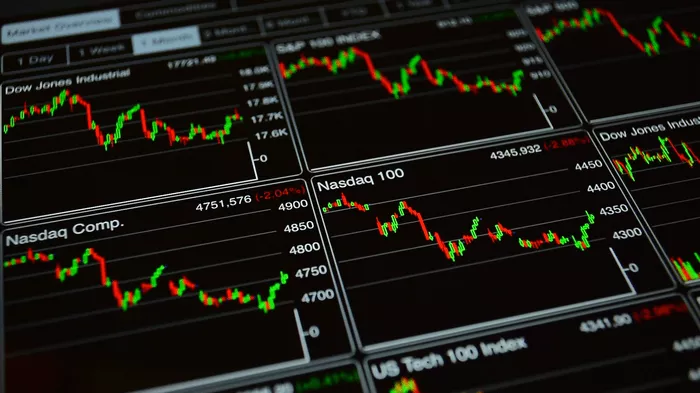Asian equities followed U.S. stocks lower on Wednesday, driven by a slump in U.S. Treasury yields, as investors recalibrated their expectations for Federal Reserve rate cuts and grew increasingly concerned about the sluggish Chinese economy. MSCI’s regional equity index dropped 0.6%, marking its steepest single-day decline in over two weeks. In China, the benchmark stock index fell to its lowest level since September, fueled by investor doubts that government stimulus measures would be sufficient to revive the faltering economy. Meanwhile, the S&P 500 fell more than 1% on Tuesday after a report revealed that inflation in U.S. service sectors hit its highest level since early 2023.
“We need to ask whether there’s a reason to buy risk assets today. Given the recent developments, I would argue that there isn’t,” said Chris Weston, head of research at Pepperstone Group Ltd. in Melbourne.
Regional Economic Concerns and China’s Struggling Economy
The broader economic uncertainty in Asia, particularly concerning China, is dampening investor optimism. Chinese markets are grappling with fears of a deflationary spiral, as the country’s economic recovery remains sluggish despite multiple stimulus efforts. These concerns have led to heightened pessimism in China’s $11 trillion government bond market, with yields on the nation’s 10-year bonds recently falling to all-time lows, now more than 300 basis points below U.S. Treasury yields. This marks a stark contrast to the U.S., where economic data has shown greater resilience.
Despite stimulus measures announced by President Xi Jinping’s government, investor sentiment in China remains bleak, reflecting doubts over whether the measures will be enough to jumpstart growth. The People’s Bank of China (PBOC) continues to maintain a tight grip on the yuan, setting its daily reference rate at 7.1887 per dollar on Wednesday—significantly stronger than the market’s expectations. The move highlights the government’s intention to avoid a sharp depreciation of the currency, amid growing concerns over its weakening.
U.S. Interest Rate Cuts Delayed, Treasury Yields Stabilize
In the U.S., Treasury yields have stabilized following a significant rise earlier in the week. The 10-year Treasury yield remained near its highest level since April after climbing six basis points on Tuesday. Traders have pushed back expectations for Federal Reserve rate cuts, with market pricing shifting from anticipating a reduction by March to a likely cut only in the second half of the year. U.S. economic data published on Tuesday also showed job openings had risen to a six-month high in November, particularly in business services, signaling continued demand for workers in certain sectors.
JPMorgan Chase strategists Jay Barry, Jason Hunter, and Phoebe White suggested in a note that the peak in U.S. Treasury yields is more than 100 basis points lower than the levels seen three months ago, indicating that yields may find greater stability in the coming weeks.
South Korea’s Stocks Rise Despite Weak Earnings Reports
While much of Asia’s equity markets fell, South Korean stocks bucked the downward trend, buoyed by strong performance from Samsung Electronics. Despite disappointing quarterly earnings, shares of the tech giant rose after Nvidia founder Jensen Huang expressed confidence in Samsung’s ability to resolve technical challenges affecting its advanced memory products.
Inflation and Oil Prices: Mixed Signals from Global Markets
In Australia, inflationary pressures showed signs of easing in November, edging closer to the central bank’s target range. This could provide policymakers with room to consider potential interest rate cuts in the near future, offering some relief to Australian consumers and businesses.
Meanwhile, oil prices climbed for a second consecutive day on Wednesday, buoyed by an industry report indicating another drop in U.S. crude inventories. Bitcoin, however, traded below $100,000, continuing its volatile journey as market sentiment remains mixed.
Related topics:
USD/INR Surges as Indian Rupee Falters
Oil Prices Rally Amid Stimulus Hopes and Global Economic Uncertainty


